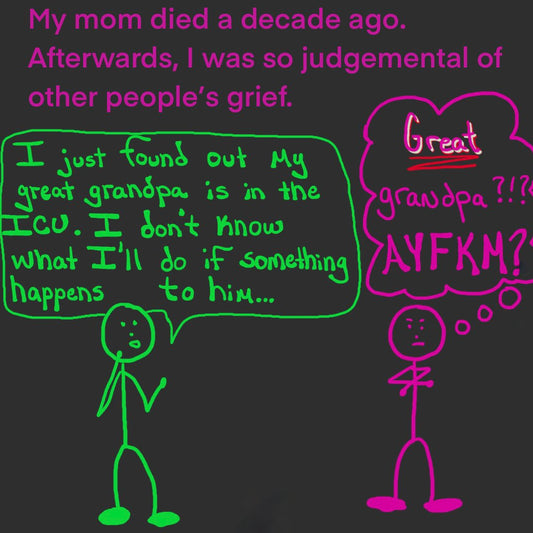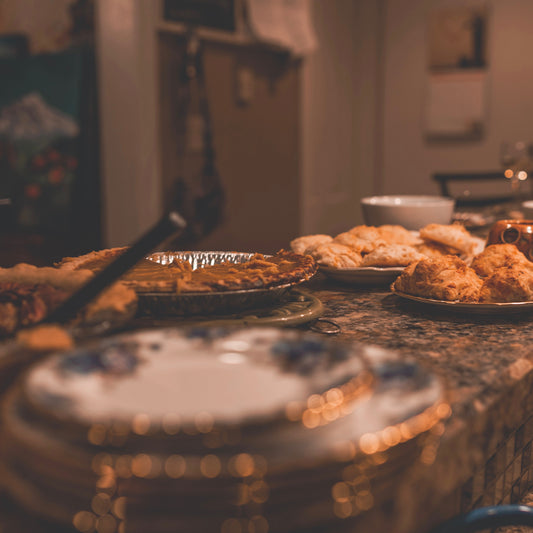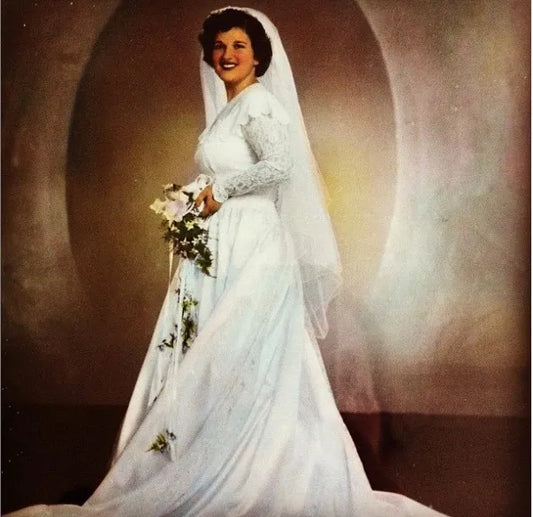I’m assuming that all of us have relationships we must maintain that are missing the feeling of mutual adoration. There are people in our lives where we are connected to through physical proximity, work, family or social connections where we both know that we don’t like each other but we try to get along. After Alison died, I was so thankful and relieved when these people met me with kindness. I couldn’t navigate our social complexities, and it was helpful for me to be treated gingerly. I saw kindness in their faces. They were sad that she died. I was appreciative.
Fast forward to now, and I realize that my life circumstances have extended beyond most people’s sympathies. And not just the people who don’t like me - though that’s where it’s easiest for me to see the expectation that I should be recovered. Elizabeth McCracken said it so matter-of-factly that I was surprised I hadn’t realized this point before (sometimes there is true beauty in the obvious). One of the great difficulties of grief is that it extends so far beyond people’s sympathy. Those social interactions that always made me a bit tense (even before my sister died) are back to where they used to be. No extra kindness in their faces, just an expectation that I am back to normal and can be treated as such. Acquaintances who I see only rarely seem to have forgotten about my sister. They ask me about my life with an expectation that I am able to participate in the fluffy conversation ("I'm doing great!" "Been so busy!"). Is it possible that they've forgotten what happened?
“Please!” I desperately want to shout, “I’m still delicate!”

The underlying cause of the great grief divide.
When my first pregnancy ended in miscarriage, I returned to work to have an annoyed colleague dump his frustration on a situation that my absence had caused. He didn’t know why I was out - but I had been gone for two weeks and that definitely seems like professional code for 'something serious happened.' He ranted on and on, and after leaving his office I promptly walked into the hall and started sobbing under the gaze of a long line of 8th graders holding their school lunch trays.
(For the record - crying in front of 8th graders is just as fun as a woman in her mid-30s as it was when I was 12-year-old middle schooler).
In An Exact Replica of a Figment of my Imagination, McCracken also talked about how we need grief business cards. She had wanted to hand one to the cashier to explain that her son was stillborn without having to say the words. At my grief retreat with Modern Loss last August, a small group of us talked about needing a universal symbol for acute grief. A pin or a bracelet, something that is easily seen to signal to the world that they need to tread lightly. No need for passive aggressive eye rolls and deep sighs of disapproval when someone cuts in front of you at the checkout. You’ll see their grief bracelet and understand that they’re moving through life in a haze.
As my colleague went onto his 5th point about how difficult his work life was, I wish I could have just handed him my card and walked out of the room. I thought about what my own grief card would say - something I would pass out everywhere. Not only to let people know I’m hurting more than usual and that they were interacting with a new version of me, but also something to create an opportunity for connection.
You’ve miscarried? Me too. (hands stranger a card)
You're not alone. Would you like to talk about it?

I don't expect people’s sympathy to last as long as my grief. While living with loss is a lifetime endeavor, I don’t want people to proceed with caution for the rest of my life. I know folks have large social networks, they couldn't possibly carry everyone’s loss with them, in addition to their own, indefinitely.
But I do think that we can be more understanding of timelines. Just because 16 months have passed since my sister’s death, does not mean that I’m ready (or have to) return to business as usual. I am still figuring out who this new me is and there are certain things I still can’t do. The holidays are hard. Unexpectedly seeing pictures of my sister is hard. Hearing the theme song to Beverly Hills 90210 is hard. I beg for your patience.
____
Here For You offers fully customizable care packages for family and friends living through life's toughest transitions. Our practical gifts range from curated household essentials to customizable sets of self-care items, all prepared with a personal touch.



4 comments
This is beautiful – I often wonder what the world would be like if we walked around with post-it notes on our foreheads with our worries and struggles. Thanks for sharing your story with us.
For my sister Teresa who I lost 12/13/11 7 years ago age 45 due to stroke and brain anarism. Way to young there are people that I know who think I should over it that will never happen. Lots of great sister memories I will always remember the milestones are the worst her birthday and Christmas time I know she loved this holiday I do celebrate for her and the family but the holidays are just not the same my brother and I will make sure our sister will never be forgotten we are #siblingsfirlife
Thank you for sharing about Reid, Copper <3
Hi Kelly’n, My sister is Sarah Cassanego. She put me in touch with you. You write eloquently and it’s all painfully true. I lost my son 6/12/17. Reid was 15.5 years old. He was a beautiful young man full of life and love for all. He was, without a doubt, one of the most mature 15 year olds I have ever had the pleasure to know because he like anyone that liked him… Reid was all inclusive! I was told 9 months after Reid’s death that it was time to move on and stop crying in front of people when they included me in things in hopes of making me feel better. So much for “You may cry and scream all you to me!” I was brought back to the reality, in a cross way I have forgiven butvwull never forget…the reality that caregivers have breaking points too! I can respect that but, as with anything, delivery, tone of voice, body language, time and place are pivotal and paramount to the success of wanting the person to recognize a break is needed. Because of how Reid passed away and the negligence involved, it had been hard for us to move through the stages of grief. As you know the stages don’t come in any order, are like a roller coaster of emotions and feelings and can return to any stage at any time. Yes, sympathy only sticks around in the hearts and minds of those closest to us. I am deeply sorry for the loss of your sister. I won’t say I know how you feel (God, I hate that!) as I haven’t lost a sibling. I lost my child, so we both know heartbreaking and gut wrenching pain! Blessings, Copper